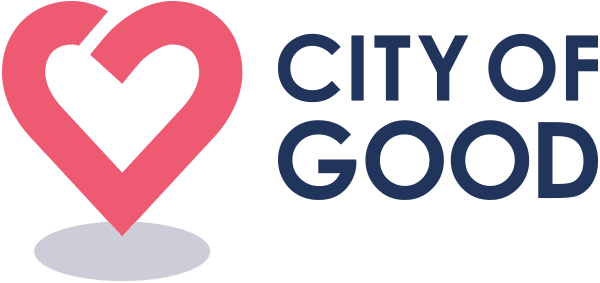Reverend Samuel Gift Stephen isn’t just on a mission to find out what rations are lacking when he visits migrant worker dormitories. He is out to save lives.
He is shortlisted in the “Leaders of Good” category for the upcoming President’s Volunteerism & Philanthropy Awards 2020 Special Edition – Our Finest Hour in the City of Good.

Recently, at 2.45am, he talked a man out of suicide. Terminated from his job and rough sleeping, he had a run in with the law and had lost all hope.
“Ask my mother to forgive me,” he’d told Rev Sam, revealing his dark despair.
“I sat down with him and started to speak to him,” said the committee chairman of the Alliance of Guest Workers Outreach (AGWO), and vice-president of Hope Initiative Alliance (HIA). He got him to open up to questions that drew his attention away from the current situation, and look instead to the future. To hope again.
Over the past few weeks, he’s saved three lives by being a friend in need, boning up on questioning techniques intended to restore a sense of wellbeing to those mired in personal and financial woes.
“I managed to rescue three guys on the verge of suicide,” he said, adding that he was among 150 AGWO volunteers who received training to become befrienders by a specialist in depression counselling.
He typically spends anywhere from 40 minutes to a few hours, sometimes continuously over two to three days, offering self-help tools, as he helps them battle the stress of the pandemic’s fallout.
Instead of creating a dependence on himself, he said: “We create the support system, and give them self-help tools so they can help themselves. It has really been very helpful.”
The issues they face are compounded by the stress of being cooped up, and inability to generate income. “They have been locked up, put into a room, 24/7, for about five months. They felt imprisoned. It is an isolation, and can break someone down. These are men from different nationalities. Bangladeshi, Thais, and South Asians, and there are cultural differences — just how much can you be with someone?”
“They’re unable to earn money, and they are getting just a fraction of what they were previously earning. There are bills to pay from the past five months. Debts have accumulated,” he added. “They have fear of losing jobs, getting the virus, and of what’s going to happen to their families back home.”
Even so, they struggle with opening up about these pressures.
Restoring dreams to uplift spirits
South Asian men, he observed, do not share emotions easily, and like to portray themselves as strong. They don’t like speaking to strangers. They tend to focus on work when they are down. Without manual tasks to engage them, he notes, they are at a loss.
So it helps that Rev Sam has become a confidante and trusted ally among guest workers since Covid-19 took over their daily agenda, with the organisation working with about 300 dormitories islandwide.
Rev Sam, in fact, regards the community as his extended family — his brothers. In 1980, Reverend Dr John Sam Stephen — Samuel’s father — had founded his own church, called Smyrna Assembly, whose mission was to reach out to foreigners working in construction and shipyards. Always welcome at the home, they shared meals with his wife and two sons, Samuel and his younger brother Joel Daniel Stephen, as well as whatever space they had for beds.
When Samuel became senior pastor at Smyrna Assembly in 2008, he and his team set up a ministry to empower and equip foreign workers with skills to upgrade themselves called Smryna Assembly Mission for Education (SAME). They could then learn English, computer skills, Autocad (industrial design), and financial management, among others. Picnics, social events, cricket tournaments, provide meals.
Since 2018, he stepped down to focus on AGWO, deepening his commitment to guest workers.
Many are struggling to overcome high stress levels, and speaking to them allows him to perform emotional triage.
Hotlines for guest workers have received tens of thousands of calls in the past six months, from men of different nationalities (South Asians, Chinese and others). These include needs-based calls about a lack of food or money, laced with anxiety or severe depression.
He’s also had to help diffuse altercations that break out among cultural groups in certain dormitories, or calm behaviours such as a man who spent hours banging his head against a stone wall.
So, assigned to dormitories in groups of three, AGWO teams are on a mission to restore dreams. In one recent case, a Bangladeshi worker returning home burdened by debt told the team he might as well die.
The team, with Rev Sam, helped him realise that he could in fact, start his own T-shirt printing business, because of his previous experience, raised funds for a machine to start him off, and brokered an order for 500 T-shirts.
The man, revitalised, is now excited and looking forward to reuniting with his family.
“Because of the current situation, they have no ability to dream dreams,” Rev Sam pointed out. Befrienders help identify tangible solutions to overcome their circumstances, and “build self confidence”.
“Through this, AGWO hopes to help guest dream dreams again.”
Find out how you can help adopt a dormitory or assist with the Alliance of Guest Workers Outreach at www.hia.sg/guestworkers
Photos by: Bryan van der Beek | Words by: Serene Goh
In partnership with What Are You Doing SG, a platform capturing the stories of people in Singapore, their challenges, collaborative nature and problem-solving spirit.




















